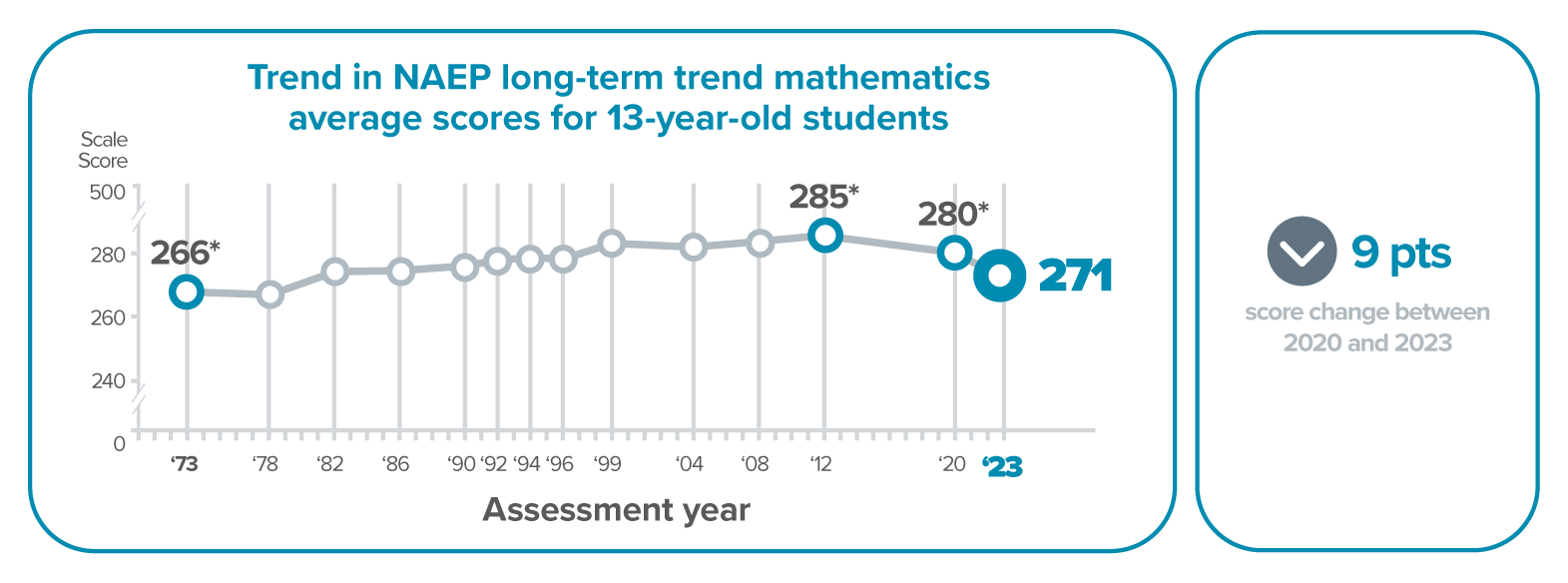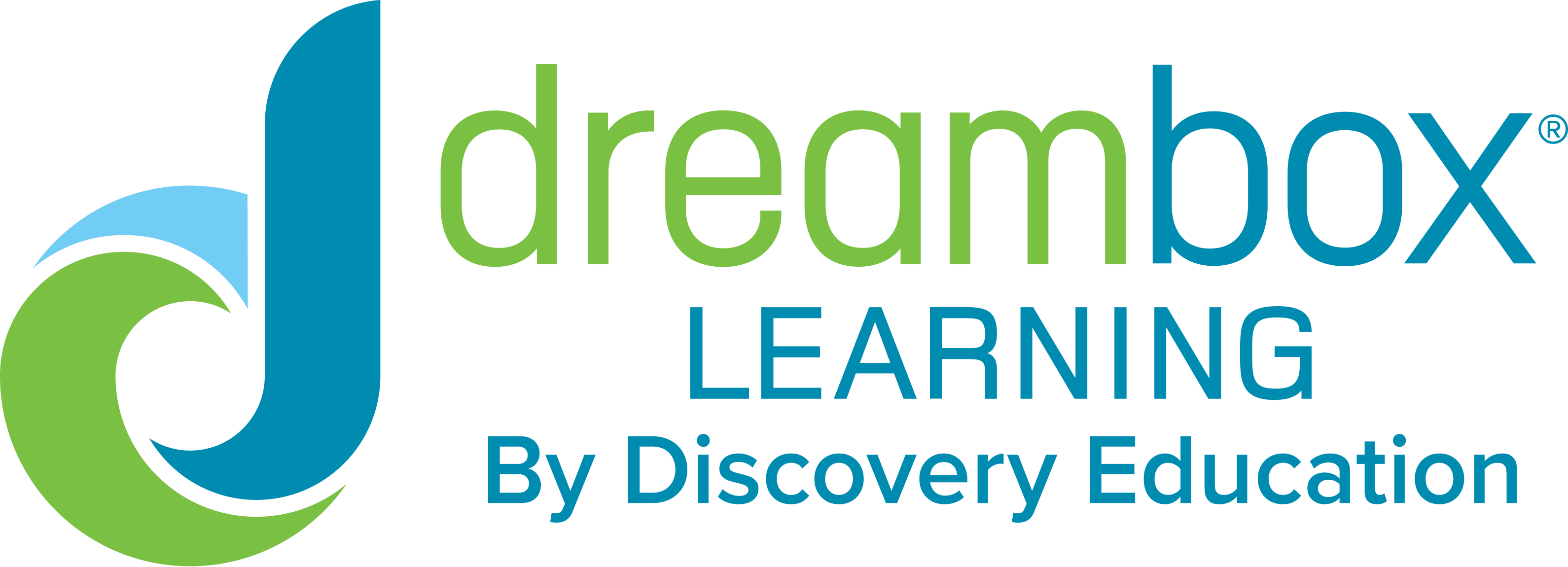In part one of our 2023 LTT (long-term trend) NAEP series, we discussed the recent LTT NAEP Reading scores, and how educators can begin to address the silent reading hurdle and motivation for students within low-performing percentiles.
While the reading scores had many areas of concern, the nation is seeing even less-than-desirable results in math. However, although the latest LTT NAEP results are worrisome, this may be the right opportunity for districts to take inventory of existing programs, assess their upcoming initiatives, and adjust direction to adopt or expand the most effective programs. Although some data can be disappointing, it can also serve as a powerful diagnostic tool to determine what is working well.
Fast facts about the latest math scores

-
The average math score declined 9 points.
-
Compared with 2012, the average math score declined 14 points.
-
This math decline is the single largest decline for 13-year-olds.
-
Math scores declined at all achievement percentiles.
-
This decrease was as much as 12 to 14 points for students in the lower performing percentiles.
-
The latest scores continue to contribute to a widening gap between specific student populations:
-
Math scores decreased for both male and female students, but more for female students.
-
Female students demonstrated an 11-point decrease.
-
Male students demonstrated a 7-point decrease.
-
Math scores declined across all races and ethnicities, but scores decreased for some demographics much more than others.
-
White students demonstrated a 6-point decrease.
-
Hispanic students demonstrated a 10-point decrease.
-
Black students demonstrated a 13-point score decrease.
-
American Indian/Alaska Native students demonstrated a 20-point decrease.
-
This widens the white−Black score gap from 35 points in 2020 to 42 points.
-
Survey data from the assessment found that 24% of students reported that they were currently taking algebra, down from 34% in 2012.
-
Fewer students also report taking pre-algebra. In 2012, 29% of students reported they were currently taking pre-algebra, and in 2023, this figure was 22%.
What can educators do?
As we mentioned in our previous post about the NAEP LTT scores, there’s no quick solution to address all the challenges ahead for both students and educators. However, it’s worth taking a step back from the data to explore how and why students may be struggling.
Nurture the middle school math mind
Even before learning loss from the pandemic, a mental health crisis, and other new global factors, middle school has been a tough period for most students. Educators know that middle school students are in a stage of transition, not only physically, but socially, and academically as well. Middle school students begin to move toward more independence, but they still require specific attention and targeted guidance.
Many teachers struggle to personalize instruction for every student, especially as the achievement gap widens and student needs become more diverse. However, providing the same one-size-fits-all approach for instruction can prevent students from developing intellectual independence in a way that responds to their individual needs. Middle school students thrive in schools and classrooms that focus on more personalized learning and leverage obvious opportunities to build emotional connections between peers, teachers, and mathematics.
Given the right conditions for learning, every student can understand algebra. The ideal conditions involve students thinking critically, collaborating, communicating their ideas effectively, and directing their own learning as they understand and master core academic content. In addition, when students develop a growth mindset – an empowered ability to persevere through difficulties and setbacks – they can work through challenges in algebra to meet curricular goals.
Encourage students to move away from memorization and toward conceptual understanding
All algebraic reasoning, reflection, communication, and self-direction begin with a student’s independent, critical thinking. Too often in mathematics, students are deprived of the opportunity to create their own solutions to meaningful problems.
Algebra-ready students don’t simply memorize formulas – they understand relationships and are eager to design their own solutions and learning. Effectively preparing students for success in algebra means ensuring they develop independent critical-thinking skills and confidence in their ability to reason logically, communicate algebraically, and persist through mathematical challenges.
The best educational technologies focus on the underlying principles and foundational big ideas in algebra rather than memorization. Educators can begin to foster this approach by providing interactive virtual manipulatives with adaptive technology. Such technology can enable students to show what they’re thinking. It also provides a safe, fun environment to take intellectual risks and figure out problems for themselves at their level of achievable challenge.
Adopt personalized learning technology
DreamBox Math is Intelligent Adaptive Learning that helps teachers and schools engage students in algebraic thinking as early as kindergarten, and throughout their elementary and early middle school years. When using DreamBox, students model relationships and connect with mathematical ideas through digital manipulatives and lessons that go beyond what can be accomplished with pencil and paper. By using these engaging conceptual tools, students can make sense of the most important ideas in algebra by designing their own solutions and justifying their thinking.
To learn more about how DreamBox Math can help middle school students get on track and continue to thrive, check out 4 ways DreamBox Learning can help drive positive math outcomes for middle school students.










